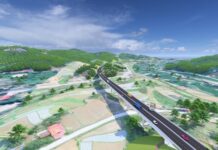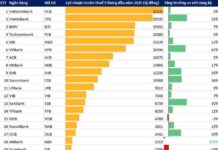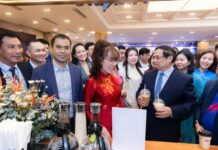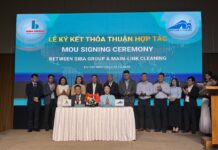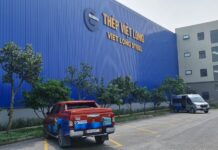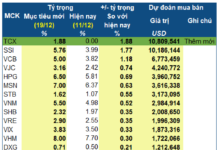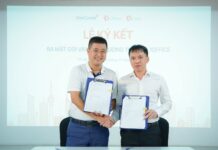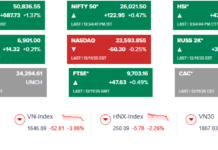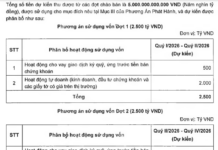On March 8, 2024 (local time) in the capital city of Canberra, Australia, Prime Minister Pham Minh Chinh visited and worked at the Commonwealth Scientific and Industrial Research Organisation (CSIRO). Also present at the meeting were leaders of ministries and localities, including Minister of Agriculture and Rural Development Le Minh Hoan.
COOPERATION WITH CSIRO TO STANDARDIZE AGRICULTURAL PRODUCTS
In his speech at the meeting, Prime Minister Pham Minh Chinh expressed his appreciation for the research cooperation between CSIRO and Vietnam in various fields, particularly in agricultural science. He congratulated and thanked CSIRO for their contribution to Vietnam since the 1980s when Vietnam was still poor and underdeveloped.
The Prime Minister believed that the current development trend is the development of the era; it is overall peaceful, but there are still conflicts in certain areas – overall stable, but there are still tensions – overall stable, but there are still conflicts. Places with war, conflict, and tension in today’s integrated world not only affect those places but also peaceful countries like Australia and Vietnam.
“CSIRO has conducted research and contributed billions of dollars. CSIRO is heading in the right direction with digital transformation, green transformation, climate change mitigation, science and technology, innovation, agriculture… that aligns with Vietnam’s development policies.”
Prime Minister Pham Minh Chinh.
CEO of CSIRO Doug Hilton reported to the Prime Minister about CSIRO’s cooperation activities with Vietnam and expressed his pleasure to exchange collaboration opportunities between CSIRO and Vietnam.
“We are pleased to collaborate with Vietnam on scientific and technological cooperation programs such as the shrimp industry program in the Mekong Delta, the plastic waste elimination program that both countries are facing, or satellite observation technology, medical research program for cancer treatment. Australia hopes to leverage achievements and build an innovative future,” Doug Hilton shared.
Minister of Agriculture and Rural Development Le Minh Hoan expressed his pleasure to visit CSIRO for the second time, as CSIRO has previously cooperated with Dong Thap on mango and other programs between the Mekong Delta and CSIRO. Currently, CSIRO is collaborating with the Vietnam National University of Agriculture on high-quality fruit crops and potatoes.
“The Prime Minister has approved Vietnam’s agriculture development strategy and the project to develop 1 million hectares of low-emission, high-quality rice. Vietnam’s agricultural development models are all associated with green transformation. This cooperation helps address the challenges in the agricultural sector facing Vietnam,” Minister Le Minh Hoan affirmed.
Minister Le Minh Hoan stated that in the future, Vietnam will focus on standardizing the agricultural sector, especially in tra fish and shrimp, in which Vietnam is currently leading the world. This industry in Vietnam is aligned with the global trend of low emission and green transformation. Therefore, Vietnam hopes for CSIRO’s support in these sectors.
ACIAR FOCUSES ON AGRICULTURAL DEVELOPMENT WITH VIETNAM
Prior to that, on March 7 (local time), within the framework of Prime Minister Pham Minh Chinh and the Vietnamese Government’s visit to Australia, Minister of Agriculture and Rural Development Le Minh Hoan worked with Professor Wendy Umberger, CEO of the Australian Centre for International Agricultural Research (ACIAR).
Since 1993, the Australian Government through ACIAR has cooperated with the Ministry of Agriculture and Rural Development to enhance research capacity, bring scientific and technological advances, and contribute to poverty reduction and income improvement of farmers.
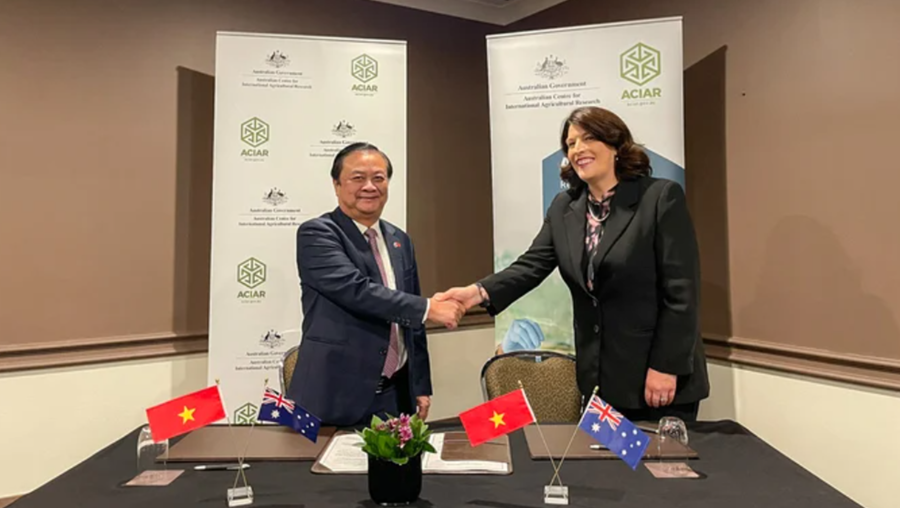
During the meeting, Minister Le Minh Hoan expressed his gratitude for ACIAR’s support over the past 31 years. “Although the scale of the projects seems small, they have had a positive and practical impact, especially in supporting small farmers and sustainable agricultural development,” the minister affirmed.
Sharing more about Vietnam’s sustainable agricultural development strategy, Minister Le Minh Hoan said that the focus is on livelihood transformation for farmers, promoting economic thinking, integrating multiple values, and green growth. In the Central Highlands region of Vietnam, the focus will be on developing fruit trees and sustainable industrial crops, with an emphasis on traceability technology to meet new market regulations such as the European Union’s Anti-deforestation Regulation (EUDR).
“In the Mekong Delta, we are focused on reducing emissions and creating salt-tolerant rice varieties; improving soil nutrition, developing high-quality fruits while optimizing production processes to ensure high-quality and safe products,” Minister Le Minh Hoan shared.
For mountainous areas, the priority is the development of agroforestry models, utilizing the special geographical and climate potential of highland areas to produce high-quality agricultural products for farmers. In the fisheries sector, the focus is on resource replenishment and conservation; encouraging innovation in aquaculture, including new products such as abalone, oysters, and seaweed.
“The ACIAR-Vietnam cooperation strategy (2017 – 2027) focuses on agriculture, forestry, and fisheries development concentrated in the Northwest, Central Highlands, and Mekong Delta regions.”
Wendy Umberger, CEO of ACIAR.
ACIAR’s Professor Wendy Umberger stated that ACIAR values the dynamic and innovative spirit of Vietnamese farmers, encouraging connections with the private sector as well as the university system and agricultural research institutions in Australia and other countries in the region.
With substantial commitments, the Ministry of Agriculture and Rural Development and ACIAR signed a Memorandum of Understanding to enhance scientific research for the development of agriculture, forestry, and fisheries. Both sides focus on pressing issues to provide long-term sustainable solutions, supporting vulnerable groups, small-scale households in adapting to climate change, protecting livelihoods, the environment, and meeting their food and nutritional needs.
Regarding the development of agricultural human resources, ACIAR continues to support Vietnam in capacity building for researchers and scientists through scholarship programs, research connections with former students, and ongoing research activities.
Director-General Wendy Umberger proposed organizing an event in May 2024 to showcase ACIAR’s projects in Vietnam, and to hold a forum that connects farmers, especially women, with scientists and private enterprises from Australia.
Professor Wendy Umberger pledged to continue supporting and closely coordinating with Vietnam to develop larger-scale projects, enhancing the effectiveness of collaboration between the two parties.







